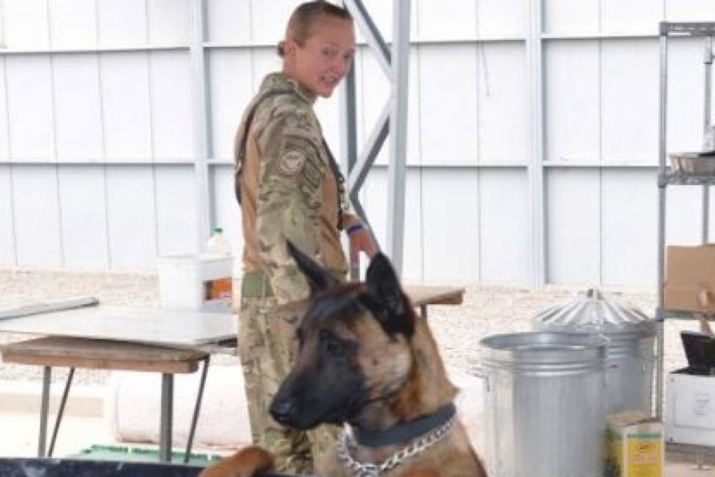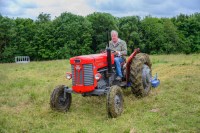Almost every day a new email pops into my inbox from the website ‘change.org’. One day they’ll be asking me to sign a petition to free Nazanin Ratcliffe, the next to lower the age for bowel cancer screening. Once you sign one, the requests keep coming. But the other day, one in particular caught my attention.
Novelist and former SAS sergeant Andy McNab had started a petition entreating the Defence Animal Centre (the home of the Ministry of Defence’s canine training squadron) to save the lives of three former service dogs. The three dogs – Kevin, Dazz and Driver – were all due to be put down this week, a decision that had the nation up in arms. Over 370,000 people signed McNab’s petition.
Two of the dogs, Kevin and Dazz, are former British Army dogs who have served in Afghanistan. As McNab puts it himself: ‘Service dogs have saved my life on numerous occasions… In Afghanistan when I was on a patrol the dogs found an IED in front of us. I was number three in line… We have a duty to save them.’ The third dog, Driver, is a former police dog.
The statement released by the MOD said that: ‘Wherever possible we endeavour to rehome military working dogs. Sadly, there are occasions where this is not possible.’ It doesn’t say very much, but it does indicate that for some reason these three dogs failed the army’s rehoming criteria.But now the new Defence Secretary, Gavin Williamson, has stepped in to save the day. After meeting the two army dogs in London yesterday, he pledged that the trio will have a ‘golden future’ and be rehomed. ‘I’ve instructed my department these dogs are to be saved,’ he said. ‘We’re talking with charities and looking at a programme as to whether they can be re-housed with a handler in a more normal environment.’
I can understand the dilemma that the MOD face with animals like these. These dogs have been trained to do a specific job; jobs which would often require them to be both brave and aggressive. These are not traits that most people look for in a pet dog. But at the same time, soldiers who worked with these three dogs begged for them to be saved, as did experienced former handlers, who also offered homes to them. So why wouldn’t the MOD change their tune without the Defence Secretary stepping in?Just last month, a very similar service dog, Mali, was awarded the Dickin Medal – the animal equivalent of the Victoria Cross – for displaying bravery after being injured while searching for explosives; the very same job that Kevin and Dazz have been doing for most of their lives. So it’s understandable that the idea of putting down these ‘hero dogs’, as people have been calling them, goes against the grain somewhat. We are, as the cliché goes, a nation of animal lovers. When a service dog is given a medal, everyone aahs and says how deserving of it he was. But the flipside is that when a story like this emerges, the negative publicity outweighs any amount of positive publicity that the army might have received from the tale of Mali and his Dickin Medal.
Why did Williamson decided to weigh in on the issue? It could have something to do with a a ‘fake news’ story that did the rounds a few weeks ago, stating that the Tories had voted that animals ‘could not feel pain’. It was shared over half a million times, and despite not being true, it left Environment Secretary Michael Gove scrambling to create some positive PR. The result was him promising a Brexit that ‘delivers not just for the British people, but for animals too’. This, too, is good PR for the cuddly Conservatives – lovely Gavin Williamson (who loves animals so much that he keeps his pet tarantula on his desk) – snatching these three dogs from the jaws of death.
Whatever the reasons behind Williamson’s intervention, the news is promising for the three dogs. But what the whole saga shows is that the army can’t have it both ways. If they want the positive PR that comes with awarding a dog a medal for bravery, they’ll need to come up with a better retirement plan for their former service dogs than simply putting them down when they’re no longer needed.






Comments